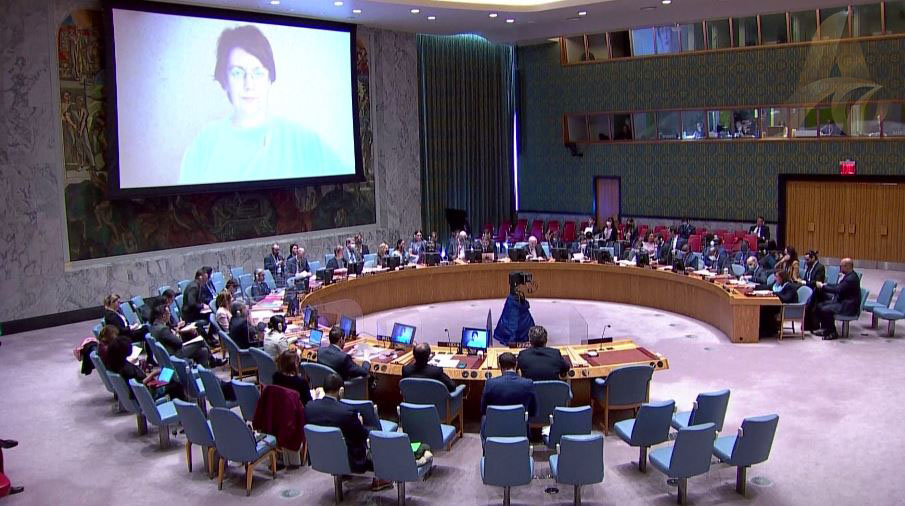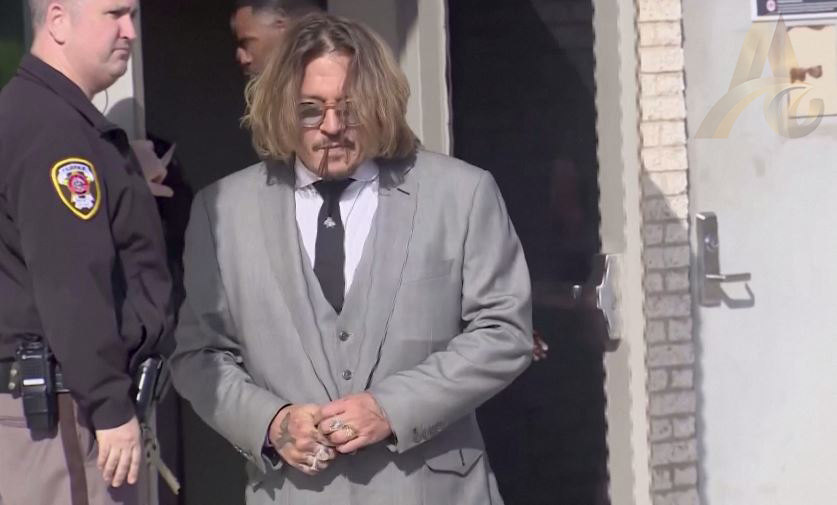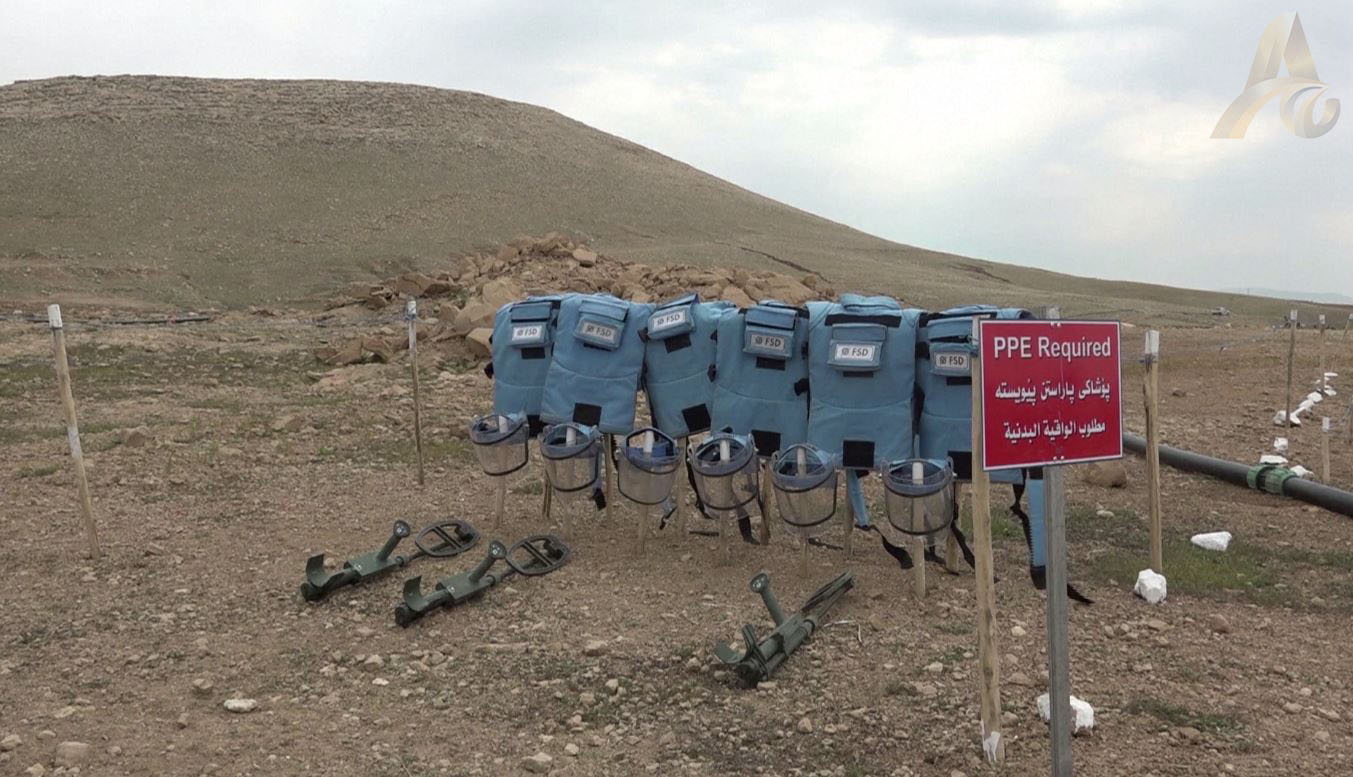Ukraine Rights Group Tells Top U.N. Body that Rape Used as a Weapon of War
PHOTO: COMMENTS FROM PRESIDENT OF LA STRADA-UKRAINE, KATERYNA CHEREPAKHA, RUSSIA'S DEPUTY U.N. AMBASSADOR, DMITRY POLYANSKIY, DURING UNITED NATIONS SECURITY COUNCIL MEETING
INTERNATIONAL: The United Nations is increasingly hearing accounts of rape and sexual violence in Ukraine, a senior U.N. official told the Security Council on Monday (April 11), as a Ukrainian human rights group accused Russian troops of using rape as a weapon of war.
Kateryna Cherepakha, president of La Strada-Ukraine, said her organization's emergency hotlines had received calls accusing Russian soldiers of nine cases of rape, involving 12 women and girls.
Russia has repeatedly denied attacking civilians since its invasion of Ukraine began on Feb. 24.
The United Nations said last week that U.N. human rights monitors were seeking to verify allegations of sexual violence by Russian forces, including gang rape and rapes in front of children, and claims Ukrainian forces and civil defense militias had also committed sexual violence.
Ukraine's U.N. mission did not immediately respond to a request for comment on allegations against Ukraine forces.
"Russia, as we have stated more than once, does not wage war against the civilian population," Russia's deputy U.N. Ambassador Dmitry Polyanskiy told the Security Council on Monday, accusing Ukraine and allies of "a clear intention to present Russian soldiers as sadists and rapists."
UN Women Executive Director, Sima Bahous, said that all allegations must be independently investigated to ensure justice and accountability.
Ukraine's U.N. Ambassador Sergiy Kyslytsya told the Security Council that the Prosecutor General's Office of Ukraine was "launching a special mechanism of documentation of cases of sexual violence by Russian soldiers against Ukrainian women."
Meanwhile, Deputy Prime Minister Iryna Vereshchuk seeks to secure the release of every single prisoner of war being held in Russia.
Out of some 1,700 soldiers and civilians she says are currently being held by Russia and pro-Russian separatists, it is the 500 women, and their treatment, which troubles her most.
"They force them to stand, don't let them sit down. They shave their heads; they force them to undress every day for checkups. They humiliate their human dignity. I know facts of rape, I saw spines that had been beaten," she said, pausing as her eyes filled with tears.
Moscow says it is providing Ukrainian POWs "with everything necessary" and "highly qualified medical care" in accordance with international law. In turn, Russia accuses Ukraine of torturing its POWs, an allegation rejected by Kyiv, which also says it upholds international agreements.
Comfortable in her army fatigues, Vereshchuk says her top priority is to secure the release of not only Ukrainian soldiers but also of hundreds of civilians, including priests, journalists and activists, who she says are being held in cells alongside criminals.
But this poses difficulties. Moscow will only exchange like-for-like but Kyiv says it holds no Russian civilians.
Johnny Depp and Amber Heard Face Off Again in U.S. Libel Trial
PHOTO: ACTORS JOHNNY DEPP AND AMBER HEARD EXITING COURT BUILDING
INTERNATIONAL: The latest chapter in Hollywood star Johnny Depp's legal battle with ex-wife Amber Heard kicks off on Monday (April 11) as a U.S. defamation trial begins over allegations Heard made about domestic abuse.
Depp, 58, has sued Heard for $50 million, saying she defamed him when she penned a 2018 opinion piece in the Washington Post about being a survivor of domestic abuse. She counter-sued him with her own libel claim of $100 million for smearing her reputation by calling her a liar.
The op-ed never mentioned Depp by name, but Depp's lawyers have said it was clear Heard was referencing him, and that the piece damaged his film career and reputation.
Depp has denied all allegations of abuse, saying in his lawsuit that Heard's claims were an "elaborate hoax to generate positive publicity for Ms. Heard and advance her career."
Juror selection is expected to begin Monday in the case.
Depp wants the Fairfax County jury to find that Heard knowingly made false claims.
Heard, for her part, will argue that she is shielded, or "immune," from liability because her 2018 op-ed on domestic violence dealt with a matter of public concern.
"I never named him. Rather, I wrote about the price women pay for speaking out against men in power. I continue to pay the price, but hopefully, when this case concludes, I can move on and so can Johnny," Heard said in a statement released on Saturday.
The U.S. trial comes less than two years after Depp lost a libel case against The Sun, a British tabloid that labeled him a “wife beater." A London High Court judge ruled he had repeatedly assaulted Heard and put her in fear for her life.
The United States is a difficult forum for libel plaintiffs, especially public figures like Depp, who faces several hurdles in the Virginia case. Depp must prove by clear and convincing evidence that Heard knowingly made false claims.
Under English defamation law, the person being sued has the burden of proving their claims were true.
Depp and Heard met while making “The Rum Diary” in 2011 and married four years later. Heard accused Depp of domestic abuse after filing for divorce in 2016.
Iraqi Women Team Up to Clear Mines and Save Lives
PHOTO: VARIOUS OF FEMALE DEMINING ACTION AT WORK IN MINE FIELD IN NORTHERN IRAQ VARIOUS OF FARMER IN FIELD COMMENTS BY DEMINING TEAM LEADER AND LOCAL FARMER
INTERNATIONAL: "The more we disable IEDs, the more some of my pain goes away," said Asmaa Khalil, whose brother, an officer in the Iraqi army, was killed by a war remnant.
Working with the Swiss Foundation for Mine Action (FSD) to clear minefields that each year cause deaths in Iraq have helped her start coping with the grief caused by her brother's passing away, Khalil said.
During the past year, about 52 people were killed by war remnants, a statement by Iraq's ministry of environment read last month. According to UNICEF and UMMAS, 519 children have been killed or maimed in Iraq due to explosive ordnance over the last five years.
Since 2019, Khalil has worked with the FSD in northern Iraq, where improvised minefields laid by Islamic State not only cause potentially lethal accidents but also prevent local farmers from cultivating their land.
According to Peter Smethers, the FSD's Iraq country director, survey-based estimates across the mine action community in 2018 evaluated the number of improvised IEDs planted by ISIS in northern Iraq to about half a million.
He said that all actors involved in mine action manage to clear roughly 50,000 - 60,000 IEDs per year since 2018, most of the landmines.
Khalil now leads a team of five women who meticulously clear one patch of land at a time. But according to Khalil, working as a woman in the field of mine action remains difficult in Iraq.
"Our society does not accept that women work in a field that is somehow of military nature. Our field is similar to that of the military, we follow military rules," she said, adding that mentalities were however starting to change.
"Since I started (clearing mines), I grew stronger," Khalil told Reuters. "I started to feel that there is no difference between us and them."
























